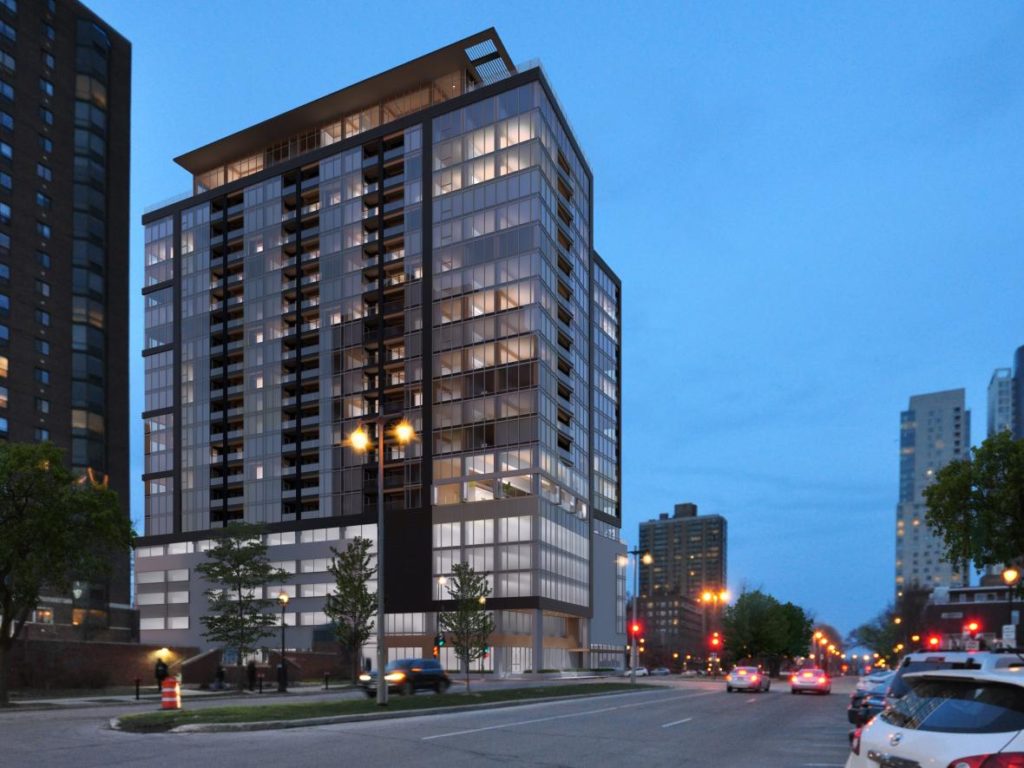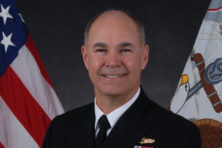State News: Climate Change, ACA Lawsuit, Marinette Marine
- Share
- Tweet
- Pin
- Share
Study Links Ice Cover Loss to Climate Change
Lake Mendota in Madison has frozen, thawed and frozen over again this winter, and a new study – with help from a University of Wisconsin-Madison scientist – shows the consequences of less lake ice are much bigger than fewer games of pick-up hockey or a shorter ice-fishing season.
Local lakes are highly sensitive to global temperatures, making lake ice one of the resources most threatened by climate change.
For the first time, scientists have provided an estimate of how many lakes across the Northern Hemisphere will lose ice cover and when.
Researchers found characteristics such as air temperature, lake depth, elevation and shoreline all affect lakes’ susceptibility to ice cover. Already, thanks to climate change, about 15,000 lakes that used to reliably freeze each winter are starting to miss seasons. Even under the best circumstances – in which the global community meets the target set by the Paris climate agreement – the number of lakes with intermittent freezing will likely double by the time the climate warms by two degrees Celsius.
“For Lake Mendota, we’re entering that period right now, that it’s getting warm enough in Wisconsin at this latitude,” said John Magnuson, professor emeritus and director emeritus of the UW-Madison Center for Limnology, who was a lead author among an international group of scientists publishing the study in the journal Nature Climate Change.
Magnuson pointed to the data on Lake Mendota for the 2018-19 winter to demonstrate how the predictions are becoming a reality today.
The lake officially froze over Jan. 10, one of the latest days in the nearly 160 years during which it has been tracked. In all, there were only three years when the lake froze that late, Magnuson said. He expects Lake Mendota could begin having winters where it does not freeze over entirely as early as next year, or within the next five to 10 years.
Poll: Several Evers Proposals Have Strong Public Support
Several of Gov. Tony Evers’ policy proposals have strong public support, according to a new poll from Marquette University Law School.
The survey, released Jan. 24, found the majority of respondents support Wisconsin leaving a federal lawsuit challenging the Affordable Care Act, taking a federal expansion of Medicaid funding and approving a “major” spending bump for special education across the state.
Those are all proposals Evers pushed on the campaign trail and in his first State of the State address on Tuesday. The poll found 48 percent of respondents support leaving the federal health-care lawsuit, compared to 42 percent who would like to remain involved. Sixty-two percent said they support accepting the Medicaid expansion, and 73 percent back spending more state money on special-education programs.
However, support for a possible gas tax increase, something Evers has entertained, is under water. The survey found 52 percent of respondents oppose the possible increase.
Approval of marijuana legalization remains on the upswing. This month, 59 percent said marijuana should be legalized. In September 2014, only 46 percent favored legalization.
Fifty-five percent of those surveyed support raising the state’s $7.25-per-hour minimum wage.
The survey also asked Wisconsinites to weigh in on the partial federal-government shutdown. Sixty-six percent said they oppose shutting down the government over funding for a border wall, while 9 percent support it.
Kaul: State Can’t Leave ACA Suit Without Legislature’s OK
Attorney General Josh Kaul plans to ask the Legislature’s budget committee for permission to withdraw Wisconsin from the lawsuit to overturn the Affordable Care Act, according to a spokesperson for Gov. Tony Evers. In a letter to Evers, Kaul said the Wisconsin Department of Justice doesn’t have the power under the law to withdraw from the case without approval from the Joint Committee on Finance.
The latest twist came after Evers asked Kaul to withdraw his support for the ACA lawsuit and announced in his State of the State address Tuesday that he was “directing” Kaul to drop the case.
But on Wednesday, an attorney for the nonpartisan Legislative Reference Bureau wrote that Evers lacked the authority to “request, require or approve the attorney general” to leave the ACA lawsuit. Evers’ office said later that day that he had not “directed” Kaul to take any specific course of action but was simply withdrawing his support for the case.
The entire dispute revolves around changes Republicans made during a lame-duck session of the Legislature in December.
Evers to Commit $31 Million for Marinette Marine
Gov. Tony Evers said he plans to commit $31 million in his state budget plan to help Fincantieri Marinette Marine.
Evers went to Marinette in northeastern Wisconsin on Jan. 24 to announce his proposal, seeking $31 million in state bonding to help the shipbuilder expand its shipyard and infrastructure.
The governor said the shipyard expansion will help Marinette Marine keep its workforce of 1,500 employees and also add an additional 400 full-time positions. The governor described those potential new positions as “family-supporting jobs.”
He said the funds will help with new docks and possibly dredge parts of the Menominee River, along which Marinette Marine is located.
Developer Wants to Build One of World’s Tallest Wooden Structures

A Milwaukee development firm is gaining national attention for its plans to build one of the tallest buildings in the world using an unusual construction technique.
New Land Enterprises is creating a 21-story apartment tower using laminated timber. The process, known as mass timber, layers wood together to create the building’s frame.
Proponents say mass timber buildings are more environmentally friendly and aesthetically pleasing than traditional concrete-and-steel buildings.
The New Land Enterprise project, named Ascent, will be a 205-unit luxury apartment building in downtown Milwaukee. New Land is also planning a seven-story mass-timber office building in downtown Milwaukee.
Wisconsin Public Radio, © Copyright 2019, Board of Regents of the University of Wisconsin System and Wisconsin Educational Communications Board.


